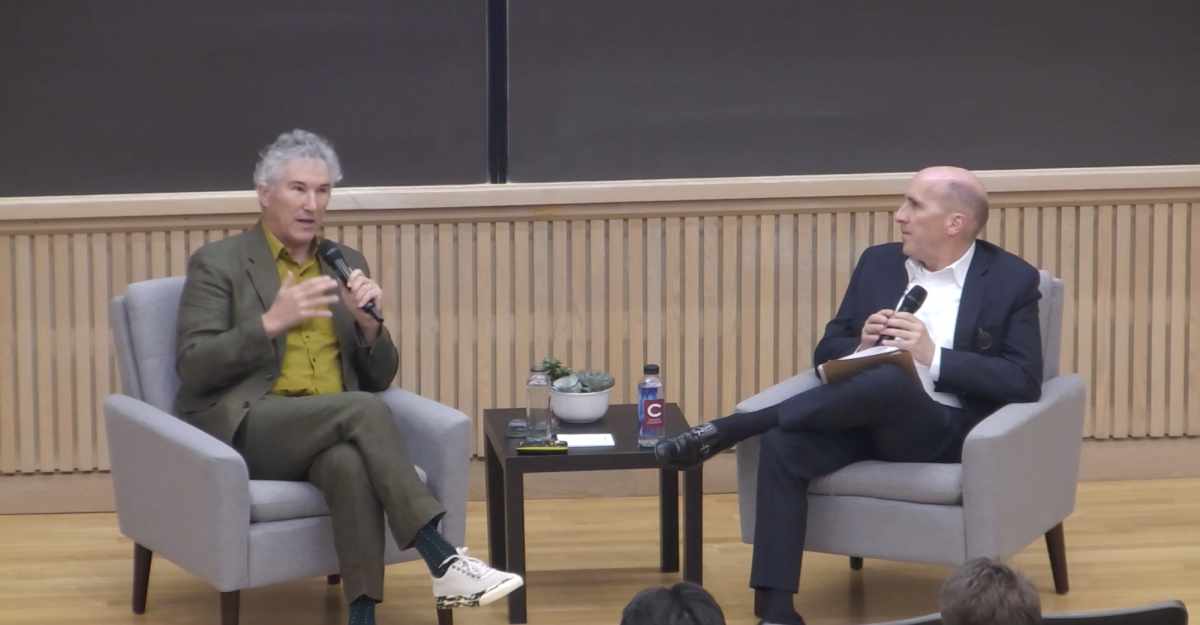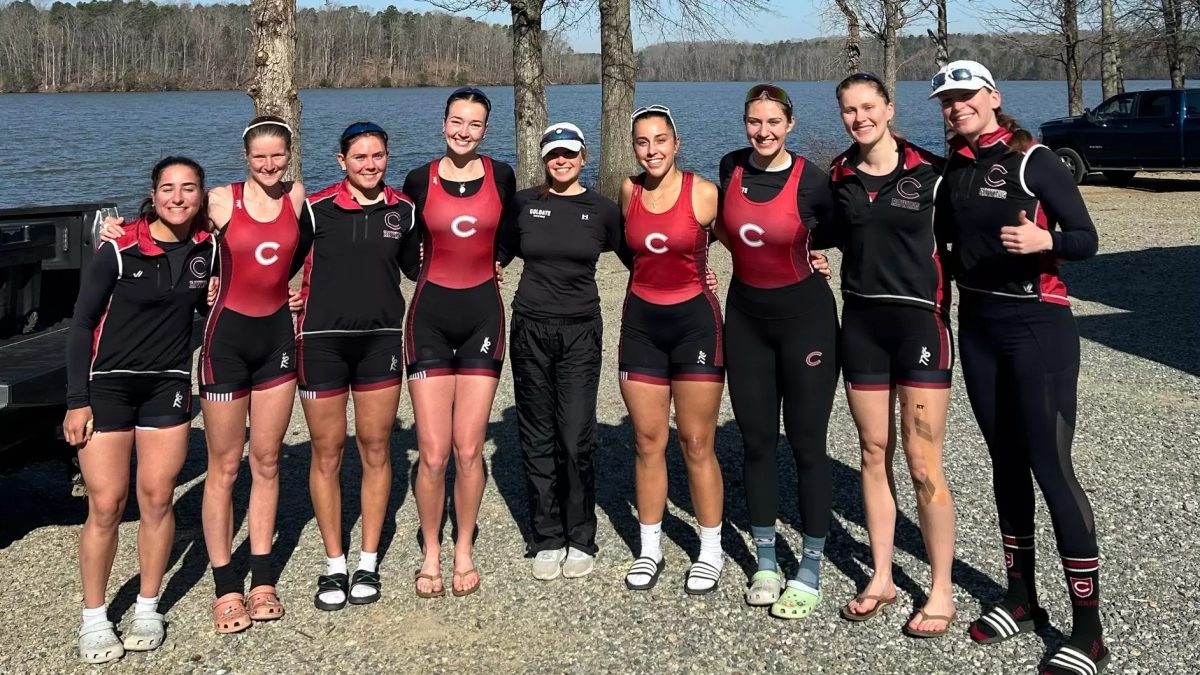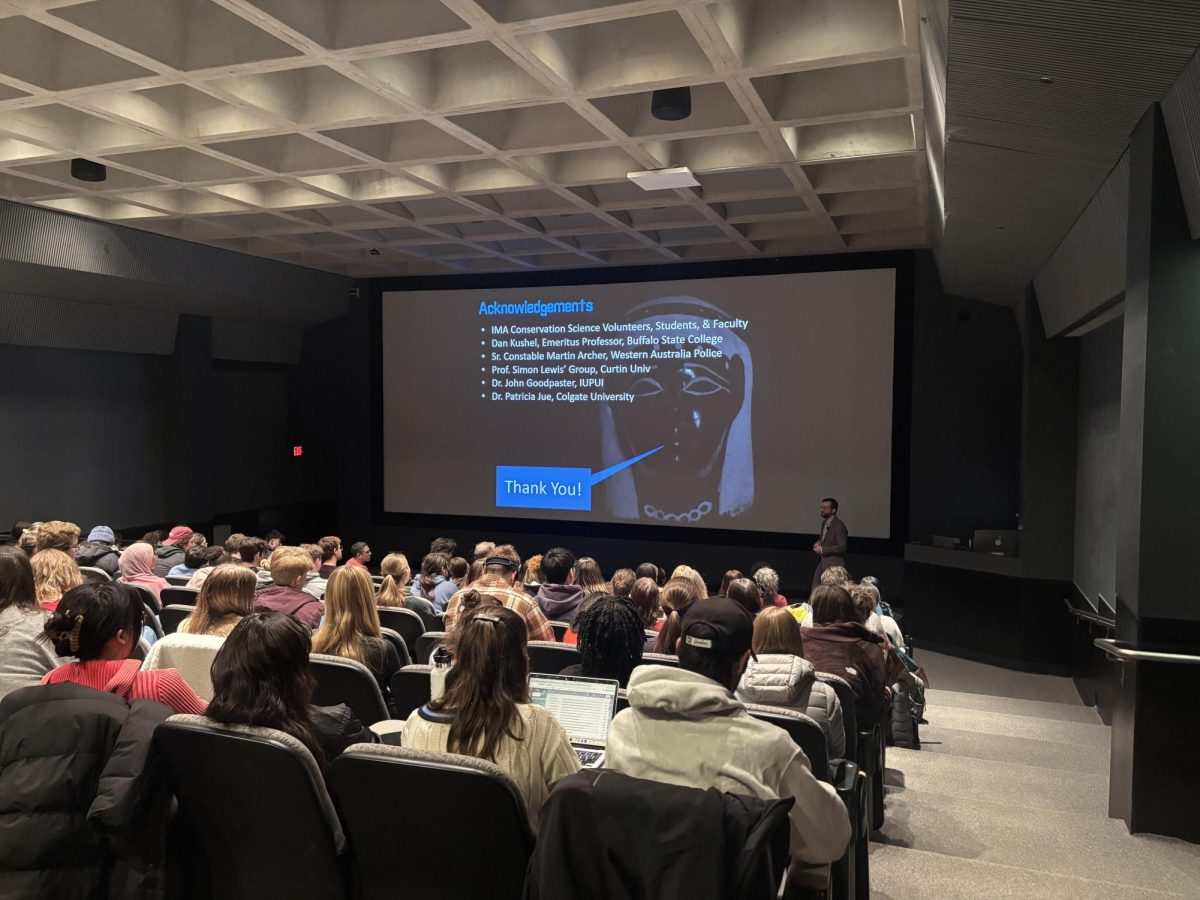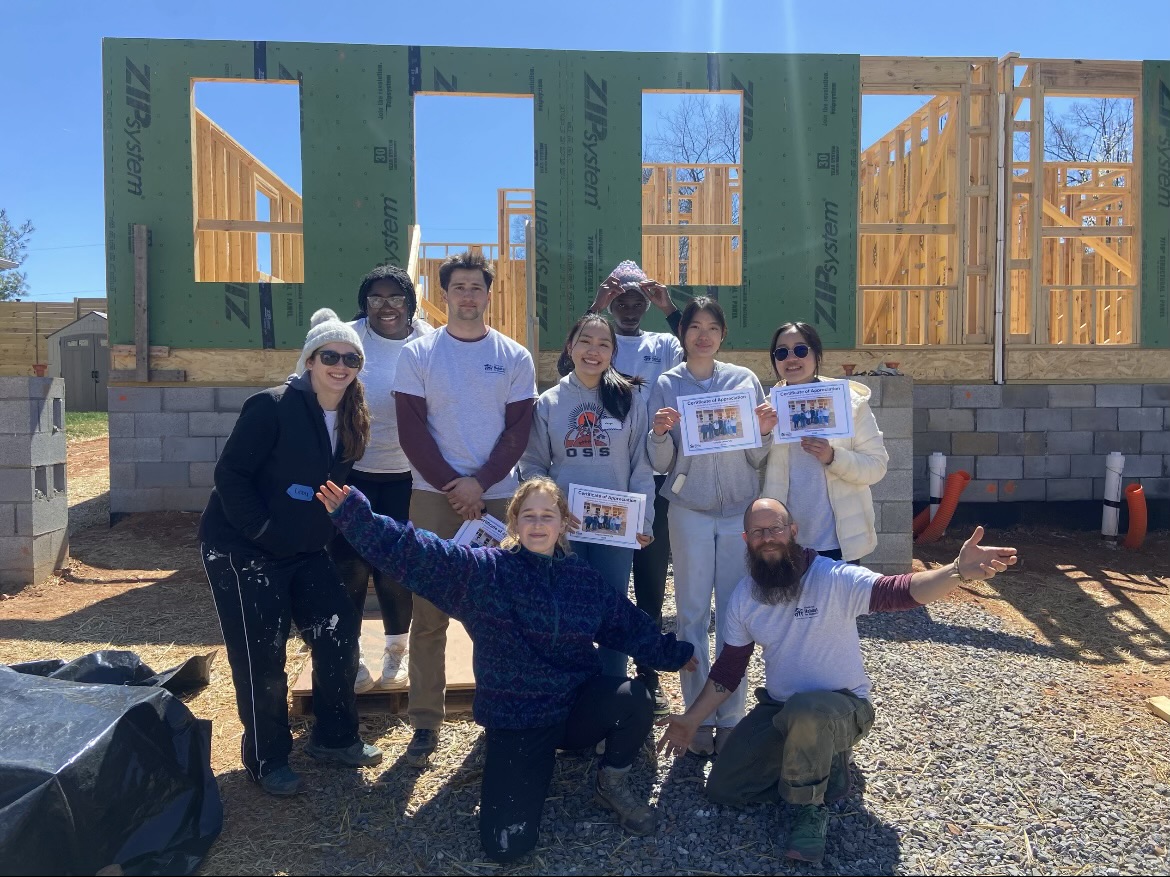John Tomasi, political philosopher and president of Heterodox Academy, joined Colgate University on March 27 as part of the Spring 2025 Presidential Speaker Series, sponsored by the Office of the President, to discuss the significant role of universities in curating open and inclusive discussions.
Tomasi began the conversation, which was moderated by Colgate President Brian W. Casey, with a quote by professor and former president of Brown University Ruth J. Simmons, who visited Colgate in October 2024.
“While other types of communities devise covenants so as to avoid confrontation, our covenant is rooted in quarrel and in opposition. At the university, we freely allow our ideas to collide in the service of learning,” Tomasi said, quoting Simmons’ speech during Brown’s opening ceremony in 2001.
On its website, Heterodox Academy describes itself as a “nonpartisan membership organization for faculty, staff and students who want to ensure that our universities are places where intellectual curiosity thrives.”
“We love our universities the way Socrates loved Athens — we love them enough to criticize them,” Tomasi said.
Promoting ideals of open inquiry, viewpoint diversity and constructive disagreement, Heterodox Academy believes that universities are unique sites that have the responsibility to motivate these values. Tomasi echoed this idea during the talk at Colgate.
“A university is a community of imperfect learners,” Tomasi said. “We say what we think honestly, knowing that we are going to be defective in our knowledge no matter how much we think we know.”
Tomasi explained that the work of Heterodox Academy is to help colleges become more inclusive by placing the pursuit of truth at the forefront.
“[At the Heterodox Academy] we’re trying to create a truly inclusive university that’s still committed to the search for truth. We restore this truth-seeking mission, not by going back to some ‘good old days,’ [but by looking toward] a future not yet realized which is deeply worth fighting for,” Tomasi said.
Tomasi also shared his opinions on the recent and intense alterations to diversity, equity and inclusion (DEI) legislation.
“My own view is that there’s parts of the reform efforts I really like, and parts I’m really concerned about,” Tomasi said.
He explained that oftentimes at Brown, where he was a professor for 27 years and was the Romeo Elton 1843 professor of natural theology, felt that they were doing inclusion the wrong way.
“Having required DEI statements for faculty hiring and promotion decisions was a huge mistake,” Tomasi said.“It led us to do really irrational things in our search processes that made no sense at all. It meant that instead of really trying to investigate who cares about teaching, who cares about learning, there were some administrators that were screening off whole chunks of the candidate pool before they could even be evaluated.”
Sophomore Cece Purkiss, a double major in environmental studies and religion, expressed some agreement with Tomasi.
“I really agree that universities should be spaces where students and professors can discuss controversial topics, as that is a large part of education,” Purkiss said. “The most productive and valuable conversations are the ones with the most diverse and wide range of opinions and perspectives. I think that is how people really learn and grow.”
However, Purkiss was less inclined to agree with Tomasi’s statement regarding DEI.
“I disagreed with the idea that the current administration getting rid of DEI mandates is a positive thing. As Tomasi highlighted the importance of inclusion, I don’t see how the decline in DEI would create more inclusive and productive spaces,” Purkiss said.
Tomasi believes that institutions need to be thinking more about ideological inclusion.
“Inclusion has an epistemic value as well as a moral value. The more we widen these circles, the better we can search for knowledge together,” Tomasi said.
Purkiss felt that Colgate creates an open and inclusive environment for students in the classroom but believed the best way to create more valued discussion is through confronting hard topics.
“As college students, I think that the best way to create more productive conversations on campus is to talk about challenging subjects that not everyone is going to agree on,” Purkiss said.“We come to college to get a great education and a large part of that is learning how to think in new ways, which requires hearing from a variety of perspectives.”
Tomasi emphasizes that Heterodox is an institution that cares deeply for the university as a space for people to share different viewpoints and experiences.
“In our essence and in our future, it is about a university for everyone,” Tomasi said.
Senior Enzo Mizerek found Tomasi’s assertions about inorganic ideological change on college campuses very insightful.
“Tomasi pointed out the potential snowball effect of this government administration withholding important funds from universities. I am interested in seeing how future administrations, particularly on the left, might respond with similarly punitive policies,” Mizerek said. “Tomasi advocated for a much better alternative: organic conversations between people with diverse political positions on campus, which is what Heterodox Academy strives for.”
The last installment of the Spring 2025 Presidential Speaker Series will be held on April 16, with Johns Hopkins University President Ronald J. Daniels.














